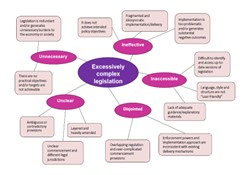Good News (BREXIT, New Science Funding, Electric Aircraft,
Flying Taxis), Bad News (Emergency Service Network,
Russia takes Sakhalin-2 LNG Project), Advanced Engineering
and Escaping Beavers
REPORT
By Miles Shepherd
Executive Advisor & International Correspondent
Salisbury, England, UK
INTRODUCTION
In the northern hemisphere, Spring has sprung and my surroundings are awash with new growth, particularly the trees in blossom and woodland flowers in full, colourful bloom. While this encourages me to look forward, it is also perhaps time to look back the Financial Year that closed at the start of last month. One of the most interesting developments came from the Chancellor of the Exchequer, Jeremy Hunt, who announced five high growth sectors in his Spring Budget. These are interesting for several reasons but the most significant for us is that they are all dominated by projects management.
GOOD NEWS
 BREXIT. Just as you thought it was all over bar the shouting, the shouting has started, again. You may be wondering why this is in the Good News section but the shouting is over an outbreak of common sense, something we Project Managers (PMs) all need but many of our leaders seem to find it hard to employ. Thus I was reassured to read that Brexiteers are angry that the wholesale axing of laws we freely negotiated and adopted while a member of the European Union (EU) has been reviewed and many due for the chop are to be retained. This news comes as the snappily titled Retained EU Law Bill transitions Parliament. Some 800 Laws will be removed from the UK statute book will be listed as Kemi Badenoch, the business secretary, attempts to get the legislation through the House of Lords. This has, perhaps predictably upset the more rabid Brexiteer Members of Parliament who claim this is only about 20 per cent of existing EU laws on the UK statute book.
BREXIT. Just as you thought it was all over bar the shouting, the shouting has started, again. You may be wondering why this is in the Good News section but the shouting is over an outbreak of common sense, something we Project Managers (PMs) all need but many of our leaders seem to find it hard to employ. Thus I was reassured to read that Brexiteers are angry that the wholesale axing of laws we freely negotiated and adopted while a member of the European Union (EU) has been reviewed and many due for the chop are to be retained. This news comes as the snappily titled Retained EU Law Bill transitions Parliament. Some 800 Laws will be removed from the UK statute book will be listed as Kemi Badenoch, the business secretary, attempts to get the legislation through the House of Lords. This has, perhaps predictably upset the more rabid Brexiteer Members of Parliament who claim this is only about 20 per cent of existing EU laws on the UK statute book.

According to reports in the UK press, laws not explicitly named on the list will remain on the statute book and will be reviewed “in due course”. High-profile EU-derived laws including the Working-time Directive and environmental legislation are expected to be retained. As I said, an outbreak of common sense although the cynic might reflect that the Civil Servants, never the most fast-moving officials, have not managed to analyse all 4,000 odd pieces of legislation – thus making it difficult if not impossible to scrap more laws. Image: www.Gov.uk
New Science Funding Scheme
This might also come under the BREXIT banner as one of the major disadvantages to leaving the European Union was the loss of funding in key areas. Most troubling was the hit on science funding through the Horizon Programme. While this particular door is not fully closed now that the stumbling block of Northern Ireland access has been lifted, Ministers remain concerned that it may not represent value for money and have other unwelcome conditions. So we learn that the Pioneer Programme will provide £14 billion for the scientific sector.
This bespoke funding plan will act as the main funding mechanism for UK scientific research. Funding would cover academic scientific research and international collaboration. It would also work in areas such as quantum physics, engineering biology and green energy. Funding would also be made available to update scientific infrastructure such as new laboratories and other infrastructure not currently funded by Horizon Europe. Importantly, Pioneer would finance efforts to attract international scientific talent, ranging from PhDs for early career researchers at the start of their careers, to research fellowships for experts in their field.
The new programme will be focused on areas such as agrifood and climate change adaptation, where the UK is already strong. Government claims, almost certainly incorrectly if past experience is anything to go by, that Pioneer would also be more flexible than Horizon, with match investments from industry permitted and partnership development with other countries around the world, not just those within the EU.
More…
To read entire report, click here
How to cite this report: Shepherd, M. (2023). Project Management Roundup from the UK, report, PM World Journal, Vol. XII, Issue V, May. Available online at https://pmworldlibrary.net/wp-content/uploads/2023/05/pmwj129-May2023-Shepherd-UK-Regional-Report.pdf
About the Author

Miles Shepherd
Salisbury, UK
![]()
Miles Shepherd is an executive editorial advisor and international correspondent for PM World Journal in the United Kingdom. He is also managing director for MS Projects Ltd, a consulting company supporting various UK and overseas Government agencies, nuclear industry organisations and other businesses. Miles has over 30 years’ experience on a variety of projects in UK, Eastern Europe and Russia. His PM experience includes defence, major IT projects, decommissioning of nuclear reactors, nuclear security, rail and business projects for the UK Government and EU. His consulting work has taken him to Japan, Taiwan, USA and Russia. Past Chair and Fellow of the Association for Project Management (APM), Miles is also past president and chair and a Fellow of the International Project Management Association (IPMA). He was, for seven years, a Director for PMI’s Global Accreditation Centre and is immediate past Chair of the ISO committee developing new international standards for Project Management and for Program/Portfolio Management. He is currently Chairman of the British Standards Institute project management committee. He was involved in setting up APM’s team developing guidelines for project management oversight and governance. Miles is based in Salisbury, England and can be contacted at miles.shepherd@msp-ltd.co.uk.
To view other works by Miles Shepherd, visit his author showcase in the PM World Library at http://pmworldlibrary.net/authors/miles-shepherd/.









